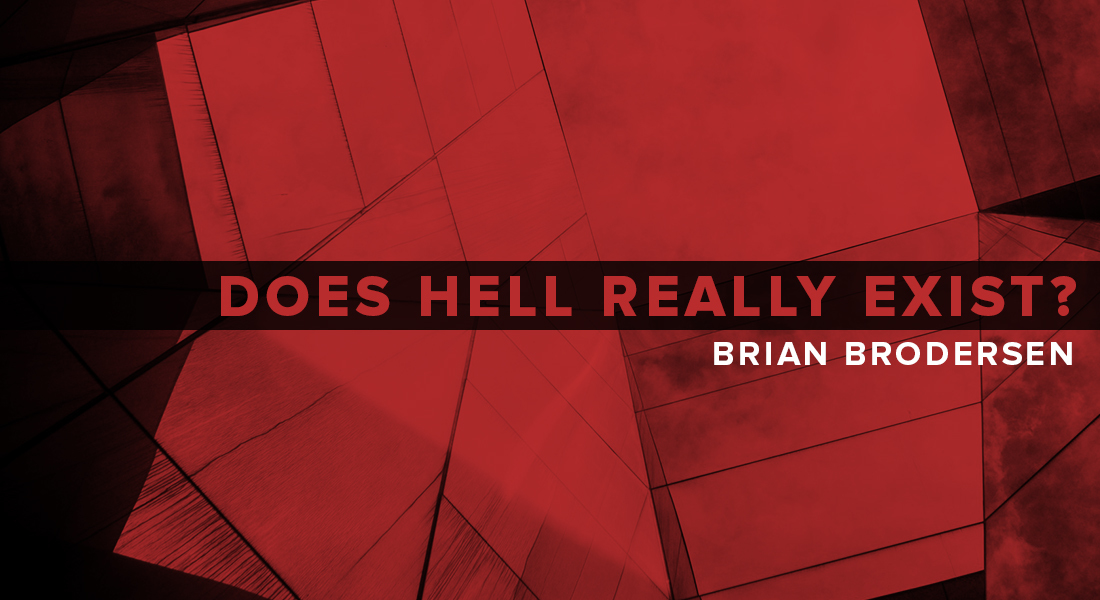
Does Hell Really Exist?
Many people blatantly deny the existence of hell. I could easily fill pages of quotes from people known and unknown who adamantly reject that there is such a place as hell. Yet that there is a place was clearly taught both by Jesus and His apostles. Here are a few quotes along with other Scripture references, affirming hell’s existence:
“If your hand causes you to sin, cut if off. It is better for you to enter into life maimed, rather than having two hands, to go to hell, into the fire that shall never be quenched” (Mark 9:42-48).
“And I say to you that many will come from east and west, and sit down with Abraham, Isaac, and Jacob in the kingdom of heaven. But the sons of the kingdom will be cast out into outer darkness. There will be weeping and gnashing of teeth’” (Matthew 8:11-12). (See also Matthew 13:40-42; Matthew 25: 31-33, 41, 46).
Each one of these quotations from the gospels came directly from the lips of Jesus. As we move further into the New Testament, we come to statements by the apostles affirming the reality of a place of eternal punishment. Let’s start with Paul’s words to suffering Christians in Thessolonica:
“It is a righteous thing with God to repay with tribulation those who trouble you, and to give you who are troubled rest with us when the Lord Jesus is revealed from heaven with His mighty angels, in flaming fire taking vengeance on those who do not know God, and on those who do not obey the gospel of our Lord Jesus Christ. These shall be punished with everlasting destruction from the presence of the Lord and from the glory of His power” (2 Thessalonians 1:5-9).
In his brief epistle, Jude referred to false teachers with these words:
“These are spots in your love feast, while they feast with you without fear, serving only themselves. They are clouds without water, carried about by winds; late autumn trees without fruit, twice dead, pulled up by the roots; raging waves of the sea, foaming up their own shame; wandering stars for whom is reserved the blackness of darkness forever” (Jude 12-13).
And the apostle John, from his vision in the book of Revelation, said this:
“Then a third angel followed them, saying with a loud voice, ‘If anyone worships the beast and his image, and receives his mark on his forehead or on his hand, he himself shall also drink of the wine of the wrath of God, which is poured out full strength into the cup of His indignation. He shall be tormented with fire and brimstone in the presence of the holy angels and in the presence of the Lamb. And the smoke of their torment ascends forever and ever; and they have no rest day or night, who worship the beast and his image, and whoever receives the mark of his name’” (Revelation 14:9-11)
“But the cowardly, unbelieving, abominable, murderers, sexually immoral, sorcerers, idolaters, and all liars shall have their part in the lake which burns with fire with fire and brimstone, which is the second death”(Revelation 21:8) (See also Revelation 20:10, 15)
So we have statements from Jesus as well as the apostles concerning the existence of hell. In fact, Jesus spoke about hell more than any other person in the Bible.
What is Hell Like?
Since Jesus and the apostles affirmed the reality of hell, the question naturally arises: What is hell like? The Scriptures quoted earlier used three images to describe the horrors of hell. First, there was the image of unquenchable fire. Theologians have been asking for ages whether or not there is a literal fire in hell. That’s difficult to answer. But I don’t think we need to bother ourselves with whether the fire is literal or figurative, for the point is clear: Hell is a place of immeasurable suffering. It could be that Jesus was speaking metaphorically. But the idea of unquenchable fire is speaking metaphorically about pain. Hell is a place of pain.
Second, hell is referred to as outer darkness. The implication given by the term “outer darkness” is that hell is separated from the light. A consistent picture in Scripture of God is that He is light, and in Him is no darkness at all. So to be cast into outer darkness is the equivalent of being set entirely outside of God’s presence.
The third image referring to hell is that of wailing and gnashing of teeth. This is a vivid description of acute anguish. So through these pictures, whether they are literal or metaphorical, the Scripture is communicating that hell is a place of intense pain, total separation from God, and acute anguish. If the descriptions of hell are figurative or symbolic, the conditions they represent are more intense and real than even the figures of speech communicate. In other words, it’s not an exaggeration to use these three terms to describe hell. This terminology probably doesn’t sufficiently describe the horror of hell. Hell is worse than unquenchable fire, it’s worse than outer darkness, it’s worse than wailing and gnashing of teeth. So we see from both Jesus and the apostles that hell is a literal place of conscious torment. It is a place where those who have rejected God live in a state of torment because they have been forever cast from His presence. The words used to describe the condition of the lost speak of being grievously and continually vexed.
As we can see, the Scriptures set forth hell as a horrific place, a place so terrifying that a man ought to do everything in his power to avoid going there. That’s the point Jesus was making in the text we began with. Jesus fully intended to strike fear in the hearts of men and women about a future judgment so that that fear might lead them to reconsider their life and turn to Him in repentance. Jesus was not at all like many preachers today who don’t want to offend their listeners by talking about negative subjects like judgment. These days, some would even accuse those who bring up the doctrine of eternal judgment of trying to scare people into God’s kingdom.
My response is that Jesus didn’t have a problem with mentioning eternal judgment. There’s nothing wrong with scaring people into the kingdom of God, because that is the only way some people are ever going to be moved to repentance. Moving people by fear is only wrong if you’re threatening them with things that don’t exist. But if hell is a reality, the fact that judgment is coming should be an incentive to unbelievers to turn from their sin. If people are actually going to hell, then we ought to warn them. And that, of course, is what the church is supposed to have been doing–warning the world about a judgment to come, not downplaying or dismissing the idea.






